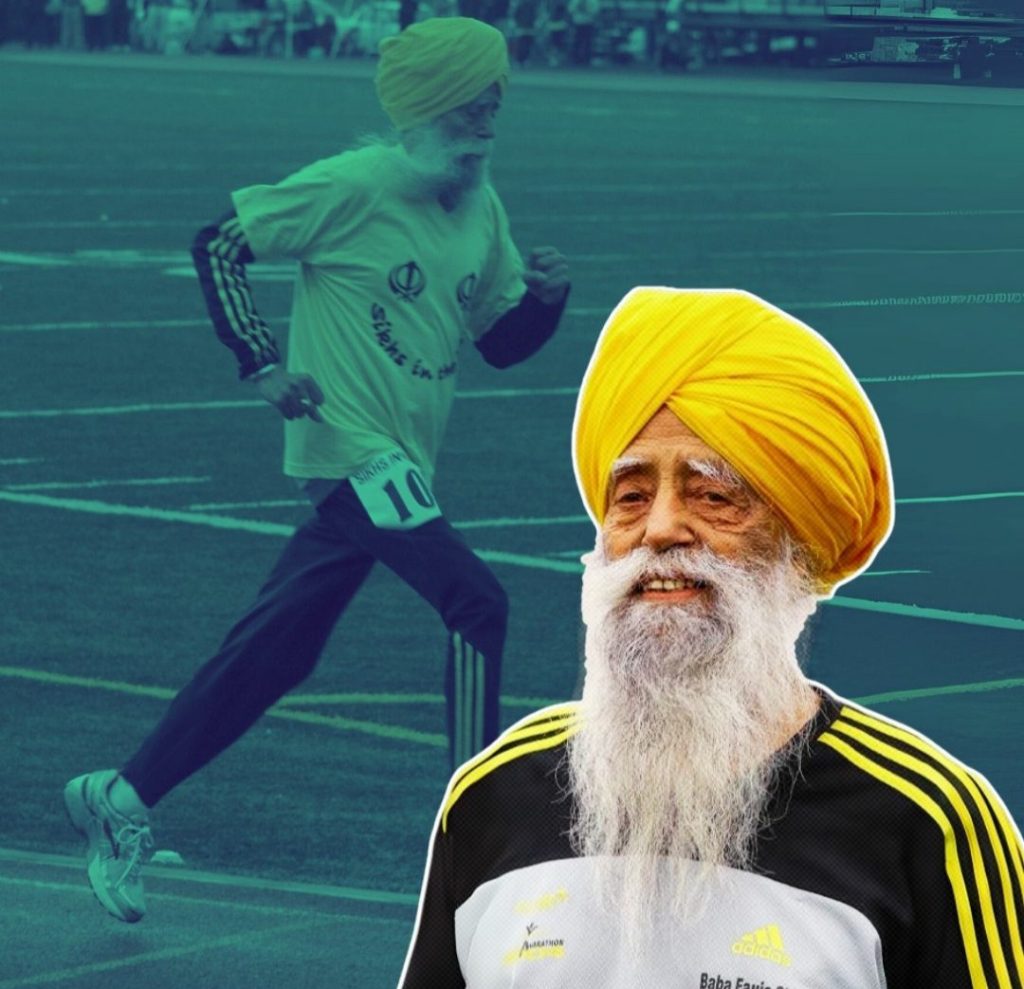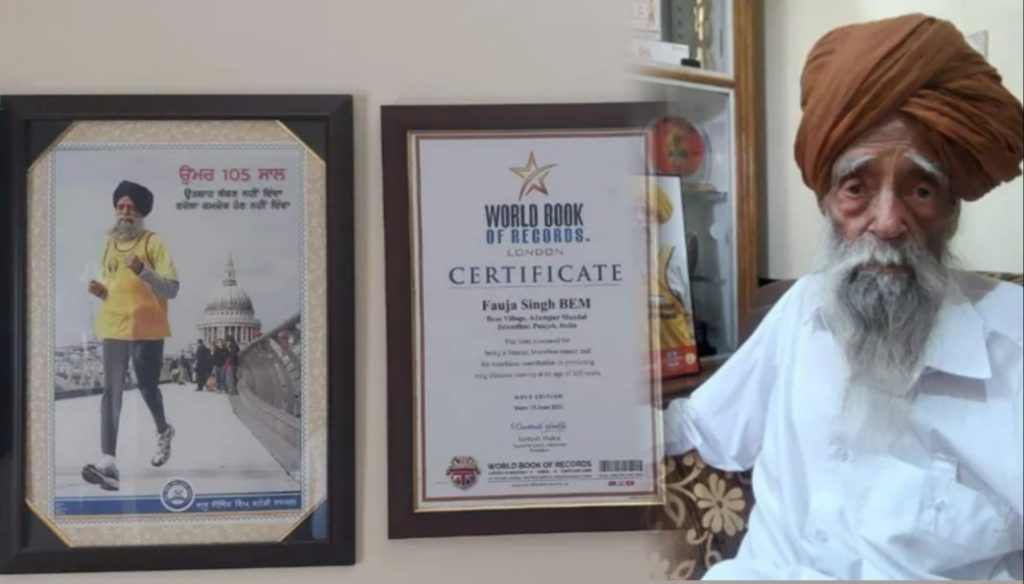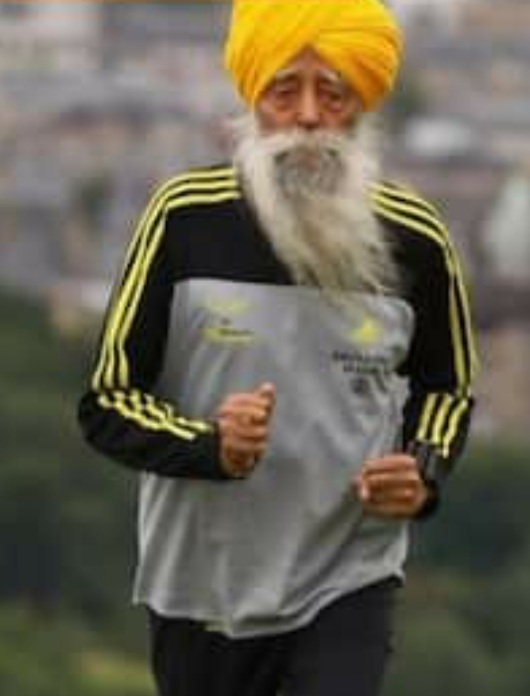It is with profound sadness that we acknowledge the passing of Fauja Singh, the extraordinary centenarian who inspired millions across the globe. News of his demise at the venerable age of 114 years following a road accident in Punjab sent ripples of grief through communities far and wide. Prime Minister Narendra Modi, among countless others, offered heartfelt condolences, eulogizing a life that defied conventional wisdom and celebrated the boundless potential of the human spirit. Fauja Singh, affectionately known as the “Turbaned Tornado,” was not merely an athlete; he was a beacon of resilience, determination, and the profound benefits of a holistic lifestyle that he embodied until his last breath.

A Life Unfolding: From Farmer to Marathon Icon
Fauja Singh’s early life was far removed from the bustling marathon tracks he would later conquer. Hailing from the village of Beas Pind in Jalandhar, Punjab, India, he spent the majority of his life as a farmer. His journey into the world of running began much later, at an age when most people considered retirement to be a distant memory. It was only after losing his wife and a son in quick succession in his 80s that Fauja Singh sought a new purpose, a way to channel his grief and find meaning. He moved to the United Kingdom to live with his son, and it was there, at the astonishing age of 89, that he decided to take up running.
What started as a way to cope with personal tragedy soon blossomed into an unparalleled passion. His first marathon was the London Marathon in 2003, which he completed at the age of 92. This was just the beginning. Over the next decade, Fauja Singh went on to complete numerous marathons, including those in Toronto, New York, and Edinburgh, etching his name into the annals of athletic history. He became the oldest person to complete a marathon at the age of 100, finishing the Toronto Waterfront Marathon in 2011 in a remarkable 8 hours, 11 minutes, and 6 seconds. While this record was not officially recognized by Guinness World Records due to the lack of a birth certificate from the colonial era, his achievement resonated globally, inspiring millions. His distinctive yellow turban and unwavering smile became synonymous with the triumph of the human spirit. Fauja Singh officially retired from competitive running in 2013, after completing a 10-kilometer race in Hong Kong at the age of 102, though he continued to walk and promote healthy living until his recent passing.

The Ayurvedic Dincharya: A Blueprint for Superb Fitness
Fauja Singh’s extraordinary fitness at such an advanced age was not a mere stroke of luck. It was, he asserted, the result of a disciplined and consistent adherence to a simple, yet profound, lifestyle rooted in principles that closely aligned with Ayurvedic Dincharya (daily routine). While he may not have explicitly used the term “Ayurveda” in his daily discourse, the practices he followed were deeply congruent with its tenets of balance, moderation, and harmony with nature.
His daily routine began early, typically before sunrise. This aligned with the Ayurvedic concept of Brahma Muhurta, the auspicious time for awakening, believed to enhance mental clarity and spiritual well-being. Fauja Singh was a vegetarian and his diet was remarkably simple, focusing on fresh, wholesome ingredients. He avoided processed foods, fried items, and anything that was difficult to digest. His meals consisted primarily of dal (lentils), roti (flatbread), fresh vegetables, and fruits. He emphasized eating in moderation, never to the point of being overly full. This aligned with the Ayurvedic principle of Mitahara, or moderate eating, which advocated consuming food that was easily digestible and in quantities that did not strain the digestive system.
Hydration was another key component of his routine. He drank plenty of water throughout the day, often warm water, which is a common Ayurvedic practice for aiding digestion and detoxification. Perhaps one of the most crucial aspects of his fitness regimen was regular physical activity. Even after retiring from marathons, Fauja Singh maintained a consistent walking routine. This gentle, consistent movement kept his joints flexible, his muscles active, and his circulation healthy. Ayurveda stresses the importance of Vyayama (exercise) that is suitable for one’s constitution and age, avoiding overexertion. Fauja Singh’s long walks perfectly embodied this principle.
Beyond diet and exercise, Fauja Singh’s mental and spiritual well-being played a significant role. He was known for his positive outlook on life, his calm demeanor, and his strong faith. He avoided stress and maintained a peaceful mind, often attributing his longevity to “living without tension.” This resonated with Ayurvedic emphasis on Sattva, a state of mental purity and balance, achieved through practices like meditation, prayer, and positive thinking. Adequate sleep was also vital. He ensured he got sufficient rest, typically going to bed early and waking up early, maintaining a regular sleep cycle that aligned with natural circadian rhythms.

In essence, Fauja Singh’s “Ayurvedic Dincharya” was not a complex, ritualistic set of practices but rather a pragmatic approach to living that emphasized simplicity, balance, and consistency. His life was a powerful testament to the idea that true health and longevity are not found in quick fixes or extreme measures, but in the mindful cultivation of simple, wholesome habits, nurtured over a lifetime. His enduring spirit continues to inspire millions, proving that age was merely a number when the heart was young and the will was strong.